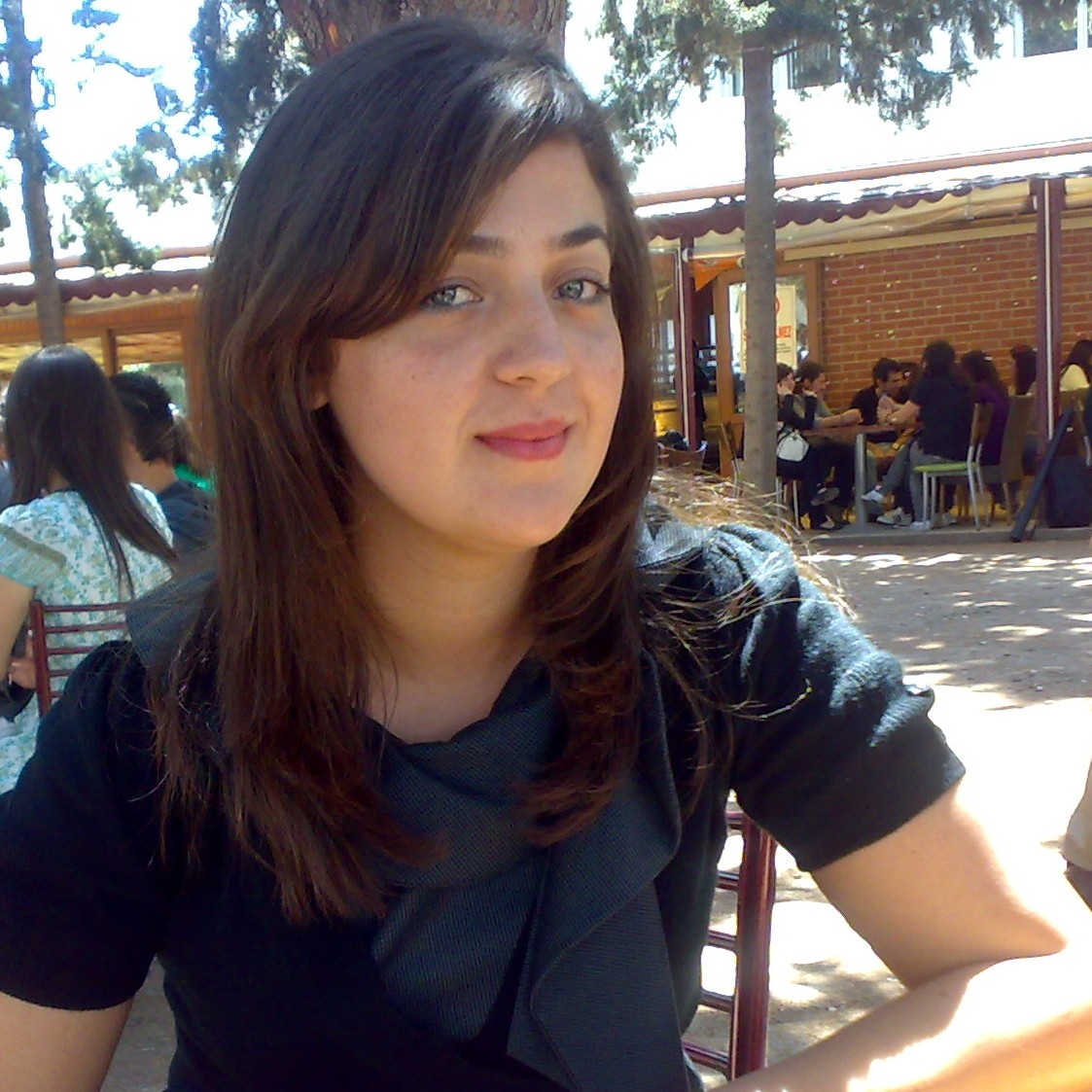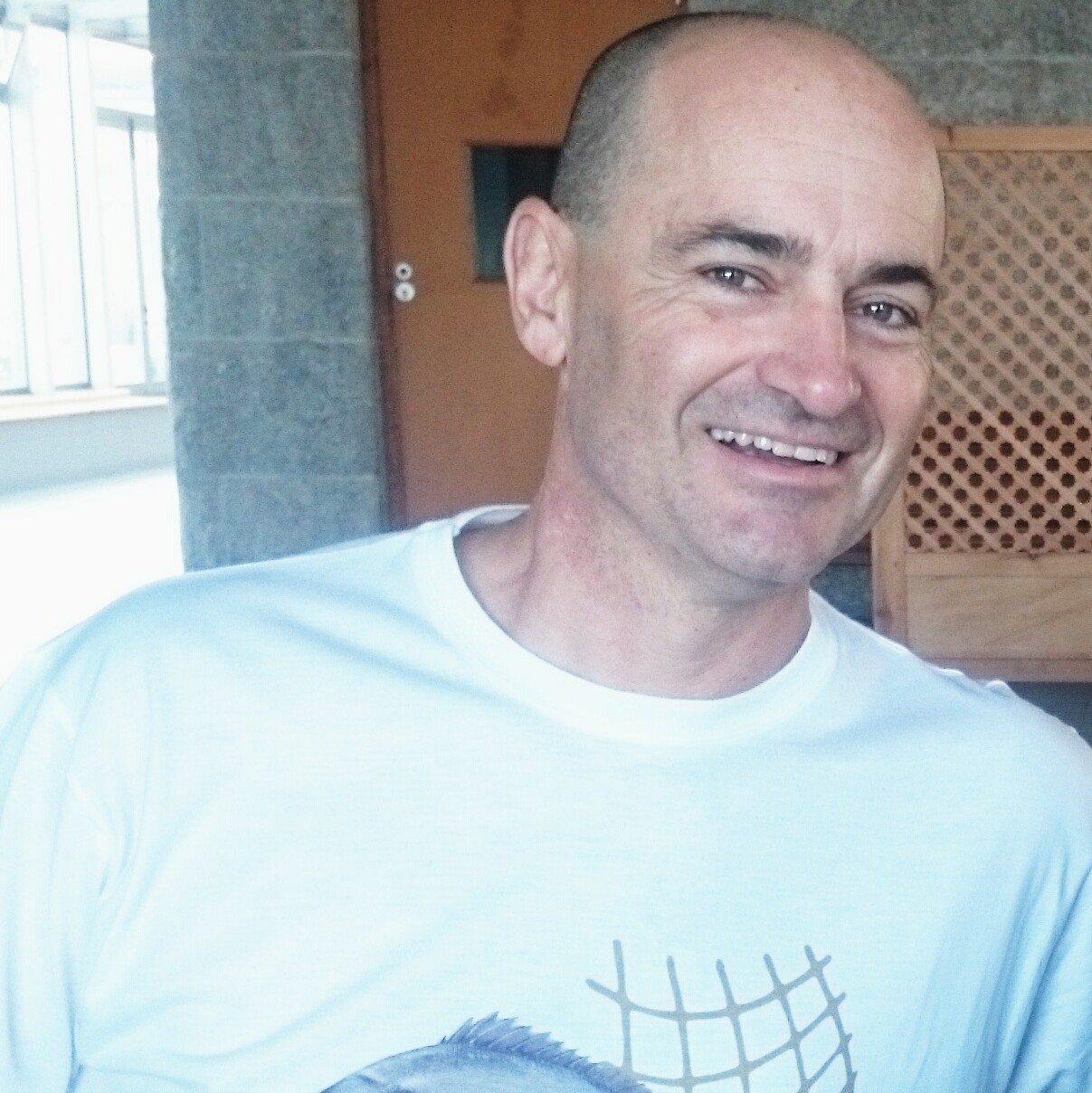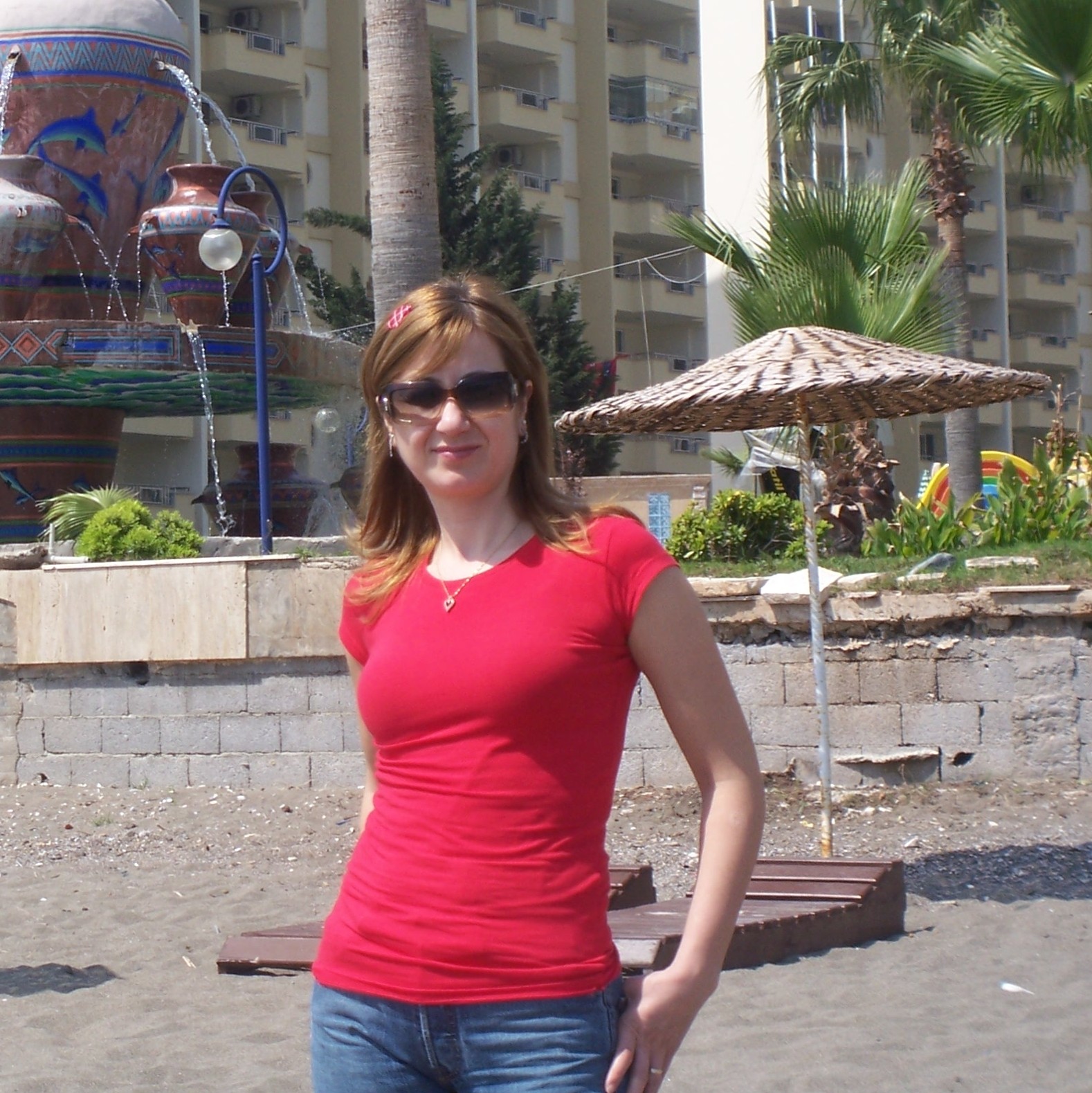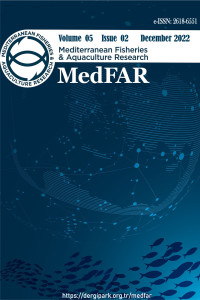Research Article
Issue Editorial Board




Aim & Scope
Mediterranean Fisheries and Aquaculture Research (MedFAR) is an international peer-review open access journal aiming to establish a platform for dissemination of high quality original research papers, short communications, technical notes, comments and in-depth reviews related to all aspects of aquatic sciences, capture fisheries and aquaculture including interdisciplinary and trans-disciplinary studies.
The main focus of the journal is Mediterranean and Black Sea region. However; this does not mean any geographic restriction, and manuscripts from other regions are also welcomed. Mediterranean Fisheries and Aquaculture Research intends to contribute to development of environmentally (both marine and freshwater), economically and socially sustainable capture fisheries and aquaculture in the region by bridging science and the industry. The journal welcomes case studies providing viable solutions to administrative and operational problems. Applied research and innovative solutions and product development are much appreciated. Similarly, conceptual frameworks and meta-analysis critical reviews from the early stages PhD researchers are strongly supported through this publication.
Along with prevailing issues related to aquatic sciences, fisheries and aquaculture, Mediterranean Fisheries and Aquaculture Research welcomes manuscripts in following domains;
- Environment and fisheries and/or aquaculture interactions, ecological footprints of fisheries and aquaculture operations,
- LCA (Life Cycle Assessments)
- Risk analysis (environmental, economic, social) in Fisheries & Aquaculture
- Marine science education
- Climate change and its potential impact on fisheries and aquaculture,
- Social and economic issues related to fisheries and aquaculture,
- Fisheries and aquaculture policies and management, including coastal zone management and marine protected areas,
- Genetics and broodstock management,
- Bio-security and aquatic animal health management,
- Sustainable fish feed production and technology,
- Innovative materials and technology, including off-shore technology related to fisheries and aquaculture operations,
- Water quality, water resources monitoring/management and technology,
- Algal technology, blue biotechnology,
- Fisheries management, conservation and restoration engineering,
- Responsible fisheries and aquaculture practices, product quality, safety and certification,
- Software, information/communication and mobile technologies in fisheries and aquaculture,
- Energy efficiency in fisheries and aquaculture,
- Fish behavior in fisheries and aquaculture, aquatic animal welfare and ethics.
Author Guidelines
1. AUTHOR GUIDELINES
Download Template
1.1 General Rules
- Mediterranean Fisheries and Aquaculture Research (MedFAR) is published twice a year.
- Publication language of the journal is English and Turkish.
- All manuscripts are subject to peer-reviewed process by at least 2 qualified reviewers.
- Manuscripts are published after the final approval by the editor in chief.
Publication categories are as follow:
a) Research article: Articles presenting original research results.
b) Review articles: An up-to-date comprehensive review of related scientific works on a particular subject.
c) Short communication: This category consists of the fast and brief announcement of the results of continuing research.
d) Technical note: A technical note is a short article giving a brief description of a specific development, technique, or procedure, or it may describe a modification of an existing technique or procedure to research techniques.
e) Comments/reply Comments: Fair and scientifically based critics or assessment of an article published in MedFAR and reply of the author (s) of the article.
f) Spotlight corner: Short personal views, assessment, or highlights regarding a critical/hot topic as well as introduction of a new development, initiative, or project of interest to fisheries and aquaculture.
1.2 Manuscript Structure
- The manuscripts should be typed on A4 size papers and the font of the articles must be Times New Roman with 12 pt.
- Manuscripts should be written with 1,5 space throughout.
- Each paragraph must be indented using tabs.
- Number of pages should be placed on the bottom-center of each pages.
- Title page of the manuscript should include title, authors' names, affiliation and full mailing addresses. Corresponding author should be indicated his/her working address, telephone numbers and e-mail address.
- All illustrations, figures, and tables are placed within the text at the appropriate points, rather than at the end (Details about preparing the illustrations and tables are listed below).
- Line numbers should be inserted throughout manuscript.
- Manuscripts should be organized as follows: Title page, abstract, keywords, introduction, material-method, results, discussion, conclusion and references. The section titles must be written with bold capital letters at 12 pt font.
- Units of measurements should all be SI units.
Title Page
The title page should include:
- The name(s) of the author(s)
- A concise and informative title
- The affiliation(s) and address(es) of the author(s)
- The e-mail address of the corresponding author
Abstract:
- Please provide an abstract of 150 to 250 words. The abstract should not contain any undefined abbreviations or unspecified references.
Keywords:
- Please provide 3 to 5 keywords which can be used for indexing purposes.
Acknowledgments:
- Acknowledgments of people, grants, funds, etc. should be placed in a separate section on the title page. The names of funding organizations should be written in full.
References:
References should be cited according to following example in the text: (Lawrence, 1990; Samuel and Richardson, 2013; Rickshaw et al., 2017). We recommend for authors to use of tools such as EndNote (http://www.endnote.com) and Reference Manager (http://www.refman.com) for management and formatting of the references.
References to be given in the references section should be listed in "6th Edition of APA Citation" according to following rules;
- Article published in journals:
Moncada, S., Palmer, R.M.J., Higgs, E.A. (1989) Biosynthesis of nitric oxide from L-arginine: A pathway for the regulation of cell function and communication. Biochemistry and Pharmacology 38: 1709 -1715.
- Books:
Strunk, W., White, E.B. (2000) The Elements of Style, fourth ed. Longman, New York.
- Chapter in an edited book:
Mettam, G.R., Adams, L.B. (2009) How to prepare an electronic version of your article, in: Jones, B.S., Smith, R.Z. (Eds.), Introduction to the Electronic Age. E-Publishing Inc., New York, pp. 281–304.
- Conference proceedings:
Glare, T.R., Barlow, N.D., Walsh, P.J. (1998) Potential agents for eradication or control of gypsy moth in New Zealand. In: Proceeddings of the 51 st New Zealand Plant Protection Conference. New Zealand Plant Protection Society, pp. 224-229.
Illustrations and Tables:
These should be referred to in the text as figures using Arabic numbers, e.g. Figure 1, Figure 2, etc., in order of appearance. All tables and figures should not exceed 16x20 cm in size. Figures should be saved in data formats in JPEG or TIFF or PNG and have high resolution with maximum 300 dpi. MSOffice files are also acceptable.
Line drawings should be on separate sheets of white paper in black indelible ink (dot matrix illustrations are not permitted); lettering should be on an overlay or photocopy and should be no less than 4 mm high for a 50% reduction. Please note, each figure should have a separate legend; these should be grouped on a separate page at the end of the manuscript. All symbols and abbreviations should be clearly explained.
Tables should be self-explanatory and include only essential data. Each table must be type written on a separate sheet and should be numbered consecutively with Arabic numerals, e.g. Table 1, and given a short caption. No vertical rules should be used. Units should appear in parentheses in the column headings and not in the body of the table. All abbreviations should be defined in a footnote.
All tables and figures that are reproduced from a previously published source must be accompanied by a letter of permission from the Publisher or copyright owner if necessary.
2. SUBMISSION PREPARATION CHECKLIST
As part of the submission process, authors are required to check if their manuscript compliance with all of the items of the guideline. Submitted manuscripts will be returned to author(s) if it does comply with the guideline.
*Please note that MedFAR team including editors and Editorial Advisory Board members are fully committed to ensure high ethical and professional standards in scholarly publication for both editors and authors. Though a new journal and not a member of the Committee on Publication Ethics (COPE), MedFAR is inspired by COPE guidelines and standards for best practices and responsible research publications for both editors and authors including;
- GUIDELINES ON GOOD PUBLICATION PRACTICE (https://publicationethics.org/files/u7141/1999pdf13.pdf),
- INTERNATIONAL STANDARDS FOR EDITORS (https://publicationethics.org/files/International%20standard_editors_for%20website_11_Nov_2011.pdf)
- INTERNATIONAL STANDARDS FOR AUTHORS (https://publicationethics.org/files/International%20standards_authors_for%20website_11_Nov_2011.pdf).
Authors are kindly encouraged to go through these document before submitting their manuscripts to be aware of the editorial aspects and to fully comply with these standards.
All manuscripts submitted to MedFAR for publication should be screened for plagiarism using İThenticate software, prior to online submission by author(s). The "Similarity Index" should not exceed 24%. The similarity report should be submitted along with the manuscript and manuscript submission and copyright form.
All manuscripts based on research works involving animals as well as questionnaire surveys, focus-group discussions and observations must have a permission/approval letter from a from relevant "Ethics Committee".
Scales, questionnaires and photographs used in manuscripts from secondary sources must have a permission letter from initial copy right owners.
**Authors are highly recommended to read MedFAR policies regarding copyrights/Licensing and ethics (see the section on about MedFAR) before submitting their manuscripts.
Ethical Principles and Publication Policy
Publication Ethics
The Mediterranean Fisheries and Aquaculture Research (MedFAR), including the editors and members of the Journal Advisory Board, is fully committed to maintaining high ethical and professional standards in scientific publication for authors. The processes implemented in this context are directly reflected in the quality of the work of the authors and the institutions that support the authors. It is important that the authors, readers, researchers, publishers, referees and editors comply with ethical principles during the publication process. Everyone is expected to maintain ethical responsibilities within the scope of publication ethics.The following ethical duties and responsibilities are written in the guidelines and policies made by the Committee on Publication Ethics (COPE).
The publication process at the Mediterranean Fisheries and Aquaculture Research (MedFAR) is the basis of the improvement and dissemination of information objectively and respectfully. Therefore, the procedures in this process improve the quality of the studies. Peer-reviewed studies are the ones that support and materialize the scientific method. At this point, it is of utmost importance that all parties included in the publication process (authors, readers and researchers, publisher, reviewers, and editors) comply with the standards of ethical considerations. Mediterranean Fisheries and Aquaculture Research (MedFAR) expects all parties to hold the following ethical responsibilities.
Ethical Responsibilities of Authors
• The authors who submit their manuscripts to the Mediterranean Fisheries and Aquaculture Research (MedFAR) are expected to comply with the following ethical responsibilities:• Author(s) must submit original studies to the journal. If they utilize or use other studies, they must make the in-text and end-text references accurately and completely.
• People who have not contributed to the study at the intellectual level should not be indicated as authors.
• If the manuscripts submitted to be published are subject to conflicting interests or relations, these must be explained.
• During the review process of their manuscripts, author(s) may be asked to supply raw data. In such a case, the author(s) should be ready to submit such data and information to the editorial and scientific boards.
• Author(s) should document that they have the participants' consent and the necessary permissions related to the sharing and research/analysis of the data that are used.
• Author(s) bears the responsibility to inform the editor of the journal or publisher if they happen to notice a mistake in their study which is in the early release or publication process and to cooperate with the editors during the correction or withdrawal process.
• Authors cannot submit their studies to multiple journals simultaneously. Each submission can be made only after the previous one is completed. A study published in another journal cannot be submitted to the Mediterranean Fisheries and Aquaculture Research (MedFAR). Author responsibilities are given in a study (e.g.: adding an author, reordering of author names) whose review process has begun and cannot be changed.
Ethical Responsibilities of Editors
The editor and section editors of the Mediterranean Fisheries and Aquaculture Research (MedFAR) should hold the following ethical responsibilities that are based on the guides "COPE Code of Conduct and Best Practice Guidelines for Journal Editors" and "COPE Best Practice Guidelines for Journal Editors" published as open Access by Committee on Publication Ethics (COPE).General duties and responsibilities
Editors are responsible for each study published in the Mediterranean Fisheries and Aquaculture Research (MedFAR). In this respect, the editors have the following roles and responsibilities:
• Making efforts to meet the demand for knowledge from readers and authors,
• Ensuring the continuous development of the journal,
• Managing the procedures aimed to improve the quality of the studies published in the journal,
• Supporting freedom of expression,
• Ensuring academic integrity,
• Following the procedures without making concessions on intellectual property rights and ethical standards,
• Being transparent and clear in issues that require correction or explanation.
Relationships with Readers
Editors must make decisions taking into consideration the knowledge, skills and expectations of all readers, researchers and practitioners need. They must also ensure that the published studies contribute to the literature and be original. Moreover, they must take notice of the feedback received from researchers and practitioners and provide explanatory and informative feedback.Relationships with Authors
Editors have the following duties and responsibilities in their relations with authors:
• Editors must make positive or negative decisions about the studies' importance, originality, validity, clarity in wording and suitability with the journal's aims and objectives.
• Editors must accept the studies that are within the scope of the publication in the pre-review process unless there are serious problems with the study.
• Editors must not ignore positive suggestions made by reviewers unless there are serious problems with the study.
• New editors, unless there are serious issues, must not change the previous editor's decisions about the studies.
• "Blind Review and Review Process" must be published and editors must prevent possible diversions in the defined processes.
• Authors should be provided with explanatory and informative feedback.
Relationships with Reviewers
Editors have the following duties and responsibilities in their relations with reviewers:Editors must
• Choose reviewers according to the subject of the study.
• Provide the information and guidance reviewers may need during the review process.
• Observe whether there are conflicting interests between reviewers and authors.
• Keep the identities of reviewers confidential in a blind review.
• Encourage the reviewers to review the manuscript in an unbiased, scientific and objective tone.
• Develop practices and policies that increase the performance of reviewers.
• Take necessary steps to update the reviewer pool dynamically.
• Prevent unkind and unscientific reviews.
• Make an effort to ensure the reviewer pool has a wide range.
Relationships with the Editorial Board
Editors must make sure that the members of the editorial board follow the procedures in accordance with the publication policies and guidelines, and must inform the members about the publication policies and developments. Moreover, editors must• Ensure that the members of the editorial board review the manuscripts in an unbiased and independent manner.
• Select the new members of the editorial board from those who can contribute to the journal and are qualified enough.
• Send manuscripts for review based on the subject of expertise of the editorial board members.
• Regularly communicate with the editorial board. Arrange regular meetings with the editorial board for the development of publication policies and the journal.
Relationships with the Journal's Owner and Publisher
The relationship between the editors and the publisher is based on the principle of the independence of editors. All the decisions made by the editors are independent of the publisher and the owner of the journal as required by the agreement made between editors and publisher.
Editorial and Blind Review Processes
Editors are obliged to comply with the policies of the "Blind Review and Review Process" stated in the journal's publication policies. Therefore, the editors ensure that each manuscript is reviewed in an unbiased, fair and timely manner.Quality Assurance
Editors must make sure that articles in the journal are published in accordance with the publication policies of the journal and international standards.Protection of Personal Information
Editors are supposed to protect the personal information related to the subjects or visuals in the studies being reviewed and to reject the study if there is no documentation of the subjects' consent. Furthermore, editors are supposed to protect the personal information of the authors, reviewers, and readers.Encouraging Ethical Rules and Protection of Human and Animal Rights
Editors are supposed to protect human and animal rights in the studies being reviewed and must reject the experimental studies which do not have ethical and related committee’s approval about the population given in such studies.
Precautions against possible Abuse and Malpractice
Editors are supposed to take precautions against possible abuse and malpractice. They must conduct investigations meticulously and objectively in determining and evaluating complaints about such situations. They must also share the results of the investigation.
Ensuring Academic Integrity
Editors must make sure that the mistakes, inconsistencies, or misdirections in studies are corrected quickly.
Protection of Intellectual Property Rights
Editors are responsible for protecting the intellectual property rights of all the articles published in the journal and the rights of the journal and author(s) in cases where these rights are violated. Also, editors must take the necessary precautions in order to prevent the content of all published articles from violating the intellectual property rights of other publications.
Constructiveness and Openness to Discussion
Editors must
• Pay attention to the convincing criticism about studies published in the journal and must have a constructive attitude towards such criticism.
• Grant the right of reply to the author(s) of the criticized study.
• Not ignore or exclude the study that includes negative results.
Complaints
Editors must examine the complaints from authors, reviewers, or readers and respond to them in an explanatory and enlightening manner.Political and Economic Apprehensions
Neither the owner of the journal, publisher, nor any other political or economical factor can influence the independent decision-making of the editors.
Conflicting Interests
Editors, acknowledging that there may be conflicting interests between reviewers and other editors, guarantee that the publication process of the manuscripts will be completed in an independent and unbiased mannerEthical Responsibilities of Reviewers
The fact that all manuscripts are reviewed through "Blind Review" has a direct influence on the publication quality. This process ensures confidentiality through an objective and independent review. The review process at the Mediterranean Fisheries and Aquaculture Research (MedFAR) is carried out on the principle of double-blind review. Reviewers do not contact the authors directly, and the reviews and comments are conveyed through the journal management system. In this process, the reviewer's views on the evaluation forms and full texts are assigned to the author(s) by the editor. Therefore, the reviewers doing review work for the Mediterranean Fisheries and Aquaculture Research (MedFAR) are supposed to bear the following ethical responsibilities:Reviewers must
• Agree to review only in their subject of expertise.
• Review in an unbiased and confidential manner.
• Inform the editor of the journal if they think that they encounter a conflict of interests and decline to review the manuscript during the review process.
• Dispose the manuscripts they have reviewed in accordance with the principle of confidentiality after the review process. Reviewers can use the final versions of the manuscripts they have reviewed only after publication.
• Review the manuscript objectively and only in terms of its content and ensure that nationality, gender, religious and political beliefs, and economic apprehension do not influence the review.
• Review the manuscript in a constructive and kind tone, avoid making personal comments including hostility, slander and insult.
• Review the manuscript they have agreed to review on time and in accordance with the ethical rules stated above.
Ethical Responsibilities of Publisher
Editors and Editorial Board of the Mediterranean Fisheries and Aquaculture Research (MedFAR) act with the awareness of the following ethical responsibilities:• The Editors and the Editorial Board of Mediterranean Fisheries and Aquaculture Research (MedFAR) are conscious of the fact that they must observe the ethical responsibilities below and act accordingly:
• Editors are responsible for all the processes that the manuscripts submitted to Mediterranean Fisheries and Aquaculture Research (MedFAR) will go through. Within this framework, ignoring the economic or political interests, the decision-makers are the editors.
• The publisher undertakes to have an independent editorial decision made.
• The publisher protects the intellectual property rights of all the articles published Mediterranean Fisheries and Aquaculture Research (MedFAR) and holds the responsibility to keep a record of each unpublished article.
• The publisher bears all the responsibility to take the precautions against scientific abuse, fraud and plagiarism.
Unethical Behaviour
If you encounter any unethical act or content in Mediterranean Fisheries and Aquaculture Research (MedFAR) apart from the ethical responsibilities listed above, please notify the journal by e-mail at medfar@mersin.edu.tr.PUBLICATION POLICY and COPYRIGHT
Mediterranean Fisheries and Aquaculture Research-MedFAR is an international peer-review open access journal aiming to contribute to development of sustainable capture fisheries and aquaculture industries by establishing a freely accessible platform for dissemination of scientific findings, facilitating knowledge sharing and promoting science-industry interactions at regional level.MedFAR is fully committed to principles of open access and free dissemination of scholarly research works and generated knowledge (http://www.oaacademy.org/why-open-access.html).
In this regard; globally acknowledged principles for open access policies i.e. “Budapest Open Access Initiative” (http://www.budapestopenaccessinitiative.org/read) and guidelines towards best practices in publishing scientific journals (Principles of Transparency and Best Practice in Scholarly Publishing (https://doaj.org/bestpractice) are fully respected.
To facilitate dissemination of scholarly research and best available scientific knowledge for sustainable development of fisheries and aquaculture sectors at regional level MedFAR does not charge any kind of publication or processing fees. The principal criterion for publication in MedFAR journal is the scientific quality of the submitted papers.
Publication Fees
Author fees / Access: The Journal database is fully open access and full text of published articles are available for everyone who can get access to the Journal website free of cost. Besides, the authors never pay any charges for submission, article processing and publication.Peer Review Process
All submitted manuscripts are subject to initial appraisal by the Co-Editors, and, if found suitable for further consideration, enter peer review by independent, anonymous expert referees. All peer review is double-blind.COPYRIGHT, LICENCING and PUBLISHING RIGHTS
MedFAR complies with the “Budapest Open Access Initiative” recommendations
(http://www.budapestopenaccessinitiative.org/).
MedFAR is using “Creative Commons” (http://www.oaacademy.org/licensing.html) Licensing scheme for publication of scholarly works. Articles in MedFAR are licensed under the Creative Commons Attribution Non Commercial 4.0 International License (CC BY-NC 4.0). For more information on this license please visit: https://creativecommons.org/licenses/by-nc/4.0/legalcode.
Authors are encouraged to visit; "https://creativecommons.org/licenses/by-nc/4.0/legalcode" for detailed information on terms and conditions of CC BY-NC 4.0 License.
Authors are kindly encouraged to go through these document before submitting their manuscripts to be aware of the editorial aspects and to fully comply with these standards.
The articles are evaluated together with the plagiarism report (IThenticate, Turnitin, etc.). The manuscripts submitted to MedFAR for publication must be screened for plagiarism by the author(s) prior to online submission. "Similarity Index" should not exceed 24%. The similarity report should be submitted with the manuscript, manuscript submission and copyright form.
For experimental works involving animals, approvals from relevant ethics committee should have been obtained beforehand assuring that the experiment was conducted according to relevant national or international guidelines on care and use of laboratory animals. Authors may be requested to provide evidence for the relevant ethical issues.
Price Policy
No fee is charged, including article submission, process management, publication, printing, subscription.
Indexes
Citation Indexes
Other Indexes
Journal Boards
Editor in Chief

Editor


Section Editors




Volume Editor


Editorial Advisory Board







MedFAR is published by Mersin University, Faculty of Fisheries in English and Turkish. MedFAR does not apply any kind of publication charges.















